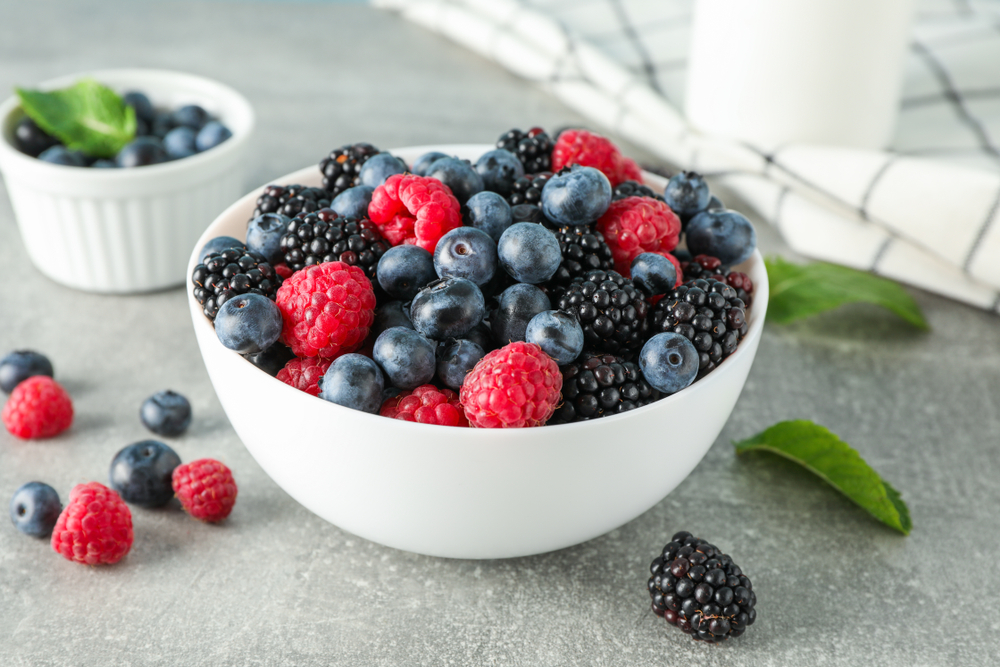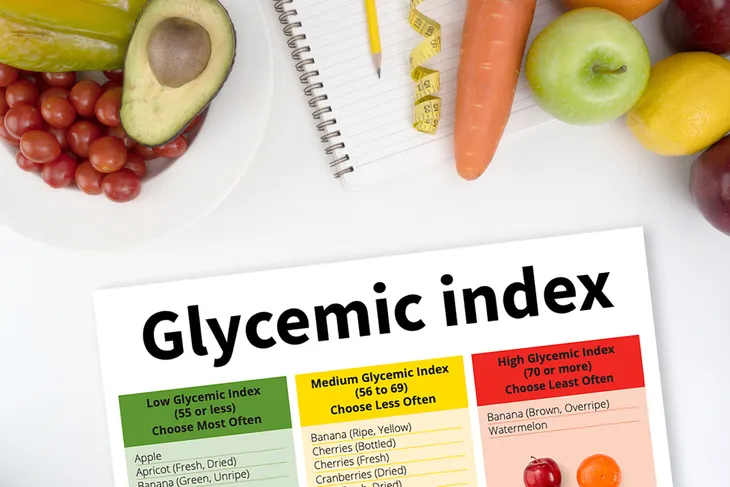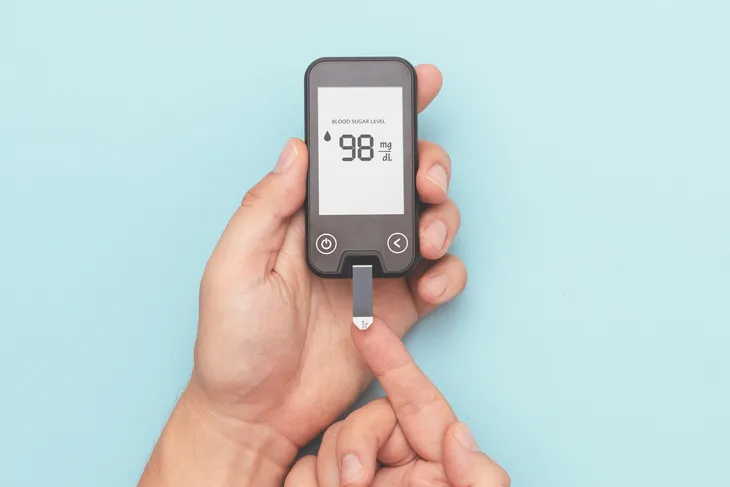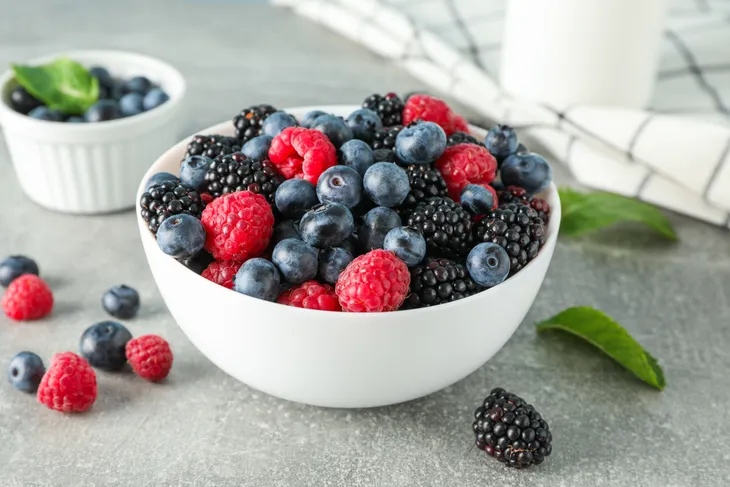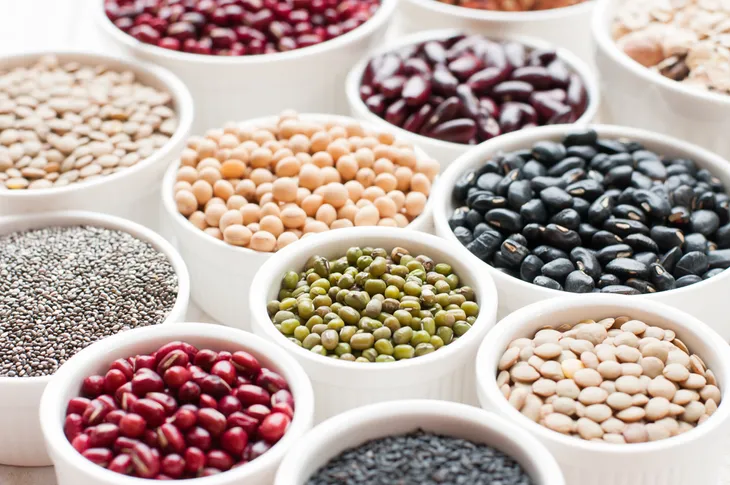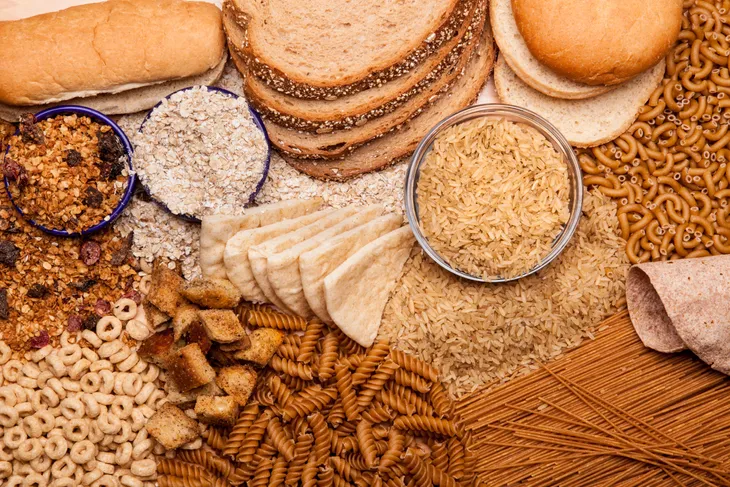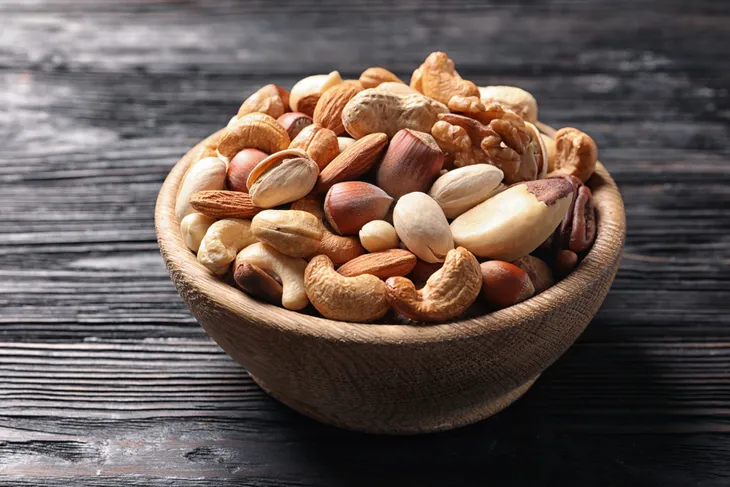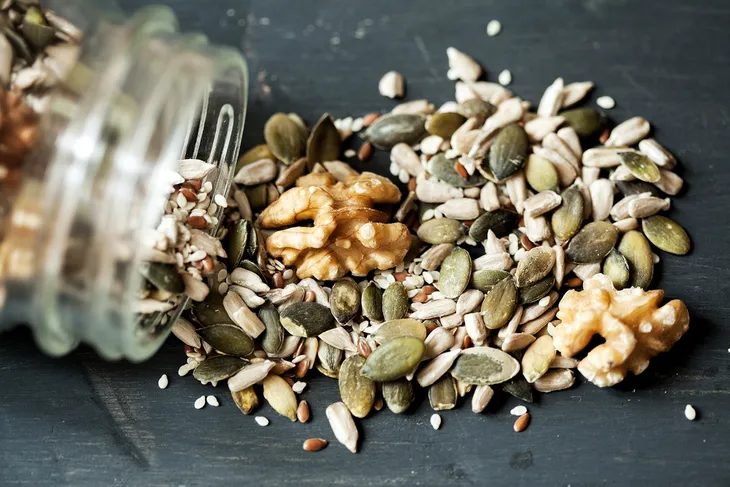- Skipping carbohydrates deprives your body of many key vitamins and minerals needed to maintain good health.
- It’s okay to eat some high-carbohydrate foods in moderation.
- Eating foods that are high in carbohydrates has less of an impact on sugar levels when combined with healthy fats and proteins.
- Choosing unprocessed, complex carbohydrates is a healthier choice than refined or processed foods.
Many diabetics avoid carbohydrates as part of their strategy to control blood sugars, but they’re missing out on many nutrients their bodies need. Your body uses carbs for energy, and they contain nutrients that can improve your health, from reducing gastrointestinal stress to improving blood flow and reducing your risk of developing cancer.
This guide reviews how people with diabetes can add healthy carbohydrates to their diet in order to better manage their condition.
What Is the Glycemic Index?
“Glycemic index” is a term many nutritionists use, and it refers to how a specific food could raise your blood sugar. Countless recipes and diet books use the glycemic index to reduce the impact of carbohydrate consumption by measuring how long it takes the body to break down the sugars you eat.
In addition to eating foods that have lower glycemic index ratings, it’s a good idea to eat balanced meals that also contain fat, protein and fiber. Doing so can flatten the typical blood sugar spikes many diabetics experience following a meal.
Glycemic Index Versus Glycemic Load
Using the glycemic index doesn’t always account for things such as the average serving size someone might eat, which is why foods are also graded by glycemic load. This may mean that you can eat some foods that have a higher rating on the glycemic index as long as you stick to the traditional serving size and don’t overindulge.
The Mayo Clinic recommends using glycemic index and load ratings as a general guide but also adding plenty of fiber and watching your total carbohydrate intake to help control your blood sugar.
Ways To Avoid Blood Glucose Spikes
The primary reason diabetics avoid carbohydrates is the fear of blood glucose spikes. While it’s natural for your blood sugar to rise following a meal, diabetics need to control their highs. In addition to taking medications, many diabetics use dietary changes to manage this medical condition.
Unfortunately, when you eliminate carbs from your diet, you’re also missing out on a lot of nutrients your body needs. To eat carbohydrates without uncontrollable blood glucose spikes, you should keep your meals balanced, eat complex carbs, count the total carbohydrates you consume, and add some fat and protein to your meals.
In the following slides we’ll discuss some carbs that can be added to your diet (in moderation) that won’t spike your blood sugar.
Berries
Berries are rich in antioxidants and fiber, which means they’re amazing when it comes to appetite control. They’re also excellent if you’re worried about your heart health because they can improve the health of your arteries and other blood vessels.
You don’t need to eat a ton of your favorite berries to get these benefits, either. A serving of just half a cup is plenty and goes well when folded into a serving of Greek yogurt.
Unsweetened Yogurt
Yogurt contains lactase, which is a form of sugar that comes from dairy. Unsweetened Greek yogurt won’t overload you with carbohydrates, however, and it can help your digestive system. Yogurt contains live cultures of bacteria that can aid your ability to digest foods and reduce the symptoms of common gastrointestinal problems that often accompany diabetes.
It’s also packed with protein, which can make you feel full faster and keep you from craving food throughout the day. It’s the perfect snack to enjoy in between meals.
 Shutterstock/DONOT6_STUDIO
Shutterstock/DONOT6_STUDIOBeans
A lot of people aren’t getting enough fiber in their diets, and adding beans is a great solution to this problem. Beans are packed with protein and fiber, which means quite a few of their carbohydrates aren’t absorbed through digestion. Eating beans regularly can help with digestive issues, such as constipation.
The two most popular kinds of beans are black beans and kidney beans, but other options include green beans, pinto beans, chickpeas and lima beans.
Whole Grains
While you should strive to eat grains in moderation, the types of grains you choose count as well. Processed grains have had many of the vitamins and minerals your body needs stripped away during refinement.
If you choose to eat bread, rice or pasta, eat a moderate amount, and select an option that’s made from a whole grain, such as barley, quinoa, whole wheat, oats or brown rice. Whole grains are absorbed by your body more slowly than refined grains as well, which can reduce their glycemic load.
Cruciferous Vegetables
Cruciferous vegetables are packed with fiber and other feel-good nutrients, and the National Cancer Institute recommends eating them to reduce your risk of cancer. Examples of cruciferous vegetables include broccoli, cauliflower, cabbage, brussels sprouts, turnips and kale.
These types of vegetables are also considered free foods in most diabetic diets, which means you can eat as many of them as you’d like. Loading your plate with them helps you fill up faster without eating an excessive amount of saturated fats.
Fruits
Contrary to what you may have heard, diabetics can and should eat fruits. Fruits contain many antioxidants the body needs to help fight off free radicals, boosting your immune system and improving heart health.
The best way to approach fruits is to only eat them in small servings and to space those servings out so that you’re not overloading your system with sugar. Moderation is key because eating too many fruits can cause high blood glucose levels.
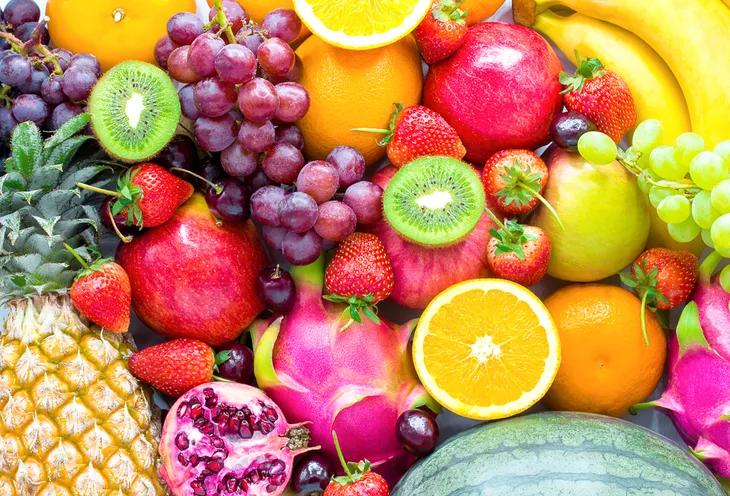 Shutterstock/CHALERMCHAI99
Shutterstock/CHALERMCHAI99Nuts and Legumes
Nuts and legumes are packed with healthy fats, oils, protein and fiber. Healthy choices include almonds, walnuts, cashews, peanuts and pistachios. You can also choose nut butters as long as they’re not processed with a ton of sugar.
When you’re snacking on nuts, keep in mind that a little goes a long way. These foods contain a lot of calories, so a handful or two is usually plenty to provide all the benefits you need.
Dairy Products
Dairy is really good for you because it contains calcium and healthy proteins. It also has sugar in it, so you need to be mindful of the dairy choices you’re making. Eating dairy in moderation, however, can strengthen your bones, improve your heart health and help you build more muscle during workouts.
Try adding a serving of cottage cheese or some unsweetened yogurt with a side of fruit for a snack that’s filling and energizing.
Avocados
Avocado is a superfood that contains a lot of fiber and healthy fat. Simply adding half an avocado to your diet each day can improve your energy and mood, improve your blood pressure and raise your good cholesterol levels.
While avocados have quite a few carbohydrates, most of them are in the form of fiber, which helps you meet your daily fiber goals and make it through the day with fewer sugar cravings. Avocados may even help you lose some weight.
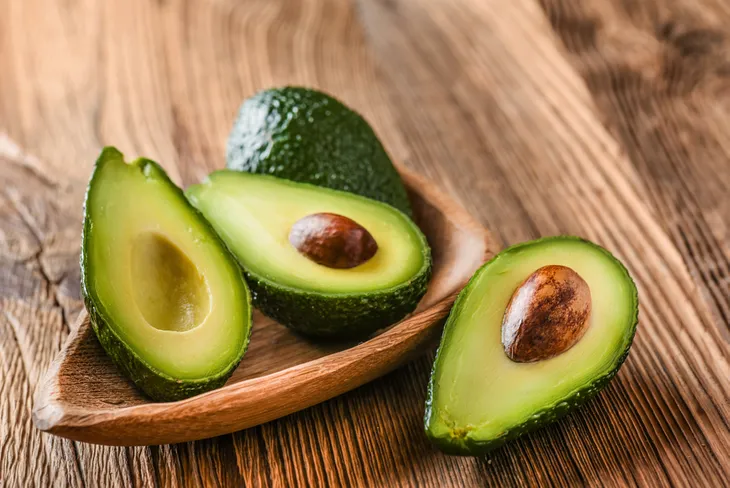 Shutterstock/Krasula
Shutterstock/KrasulaSeeds
Adding seeds to your diet in the form of pumpkin seed, flaxseed, sunflower seed or chia seeds can boost your metabolism. Seeds are rich in magnesium, healthy fat and fiber. This promotes good heart health, weight regulation and blood sugar control.
Many people’s diets don’t include enough magnesium, which is an essential electrolyte the body uses for digestion and mental processes. Adding a serving of seeds to your diet each day can make you feel more focused and help you avoid excessive sugar spikes.
